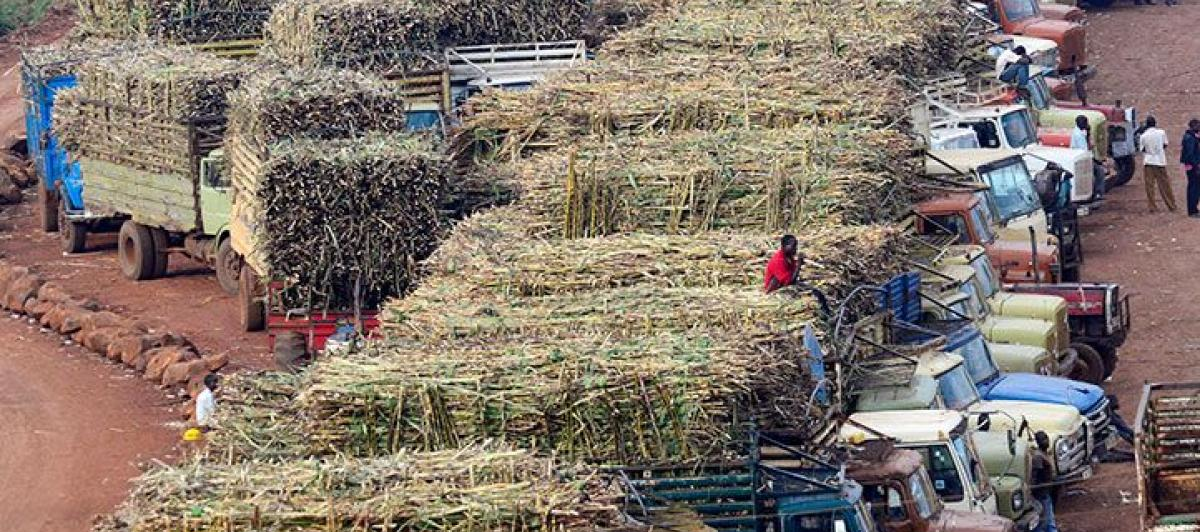(3 Minutes Read)
The Ugandan sugar cane industry is in a state of turmoil, as sugarcane farmers are protesting about the falling prices of cane amid a glut millers blame on rapidly shrinking regional markets, which has resulted in domestic stocks rising to unprecedented levels.
Farmers in the eastern district of Buikwe resolved to halt supplies of cane to Lugazi-based Sugar Corporation of Uganda Ltd (SCOUL) in protest against the fall in the price of cane from USD 67.72 per tonne, just over a year ago to USD 37.92 today.
The millers say they are hamstrung and warn of further declines unless clogged regional markets open up to Uganda. The cane prices are not a reflection of the supply of cane; they are more a reflection of the challenges in the market for refined sugar, stated Wilbur Mubiru, spokesperson for industry lobby Uganda Sugar Technologists Association.
Whenever the industry face challenges in the market for refined sugar, that is transmitted backwards to the price for cane. If the Ugandan industry had better access to the East African market, we would have been in better standing. Recently, retail prices have fallen sharply in Uganda, averaging USD 0.89 per kilo. That is less than half the peak price of USD 1.90 a kilo three years ago. The COVID-19 shutdowns in 2020-21 hurt demand for sugar in Uganda, leading to many farmers abandoning sugarcane farming.
But subsequent dry conditions in the region as markets opened up amid disruptions to international shipping saw a spike in demand, sending retail prices sky-high. Prices rebounded strongly, creating a new normal that encouraged more people to plant cane. Now, some millers are predicting a further price decline.
Uganda is dependent on the Kenyan market, which is now flooded with their domestically produced sugar because of good rains over the past 18 months. The regional market has seized up as a result. Uganda’s 16 sugar factories have an installed capacity of 1.2 million tonnes per annum but are operating at only half that capacity because of constrained access to export markets. Domestic consumption is only 0.4 million metric tonnes. Kenya is the single-largest regional market, with Ugandan exports peaking at 100,000 tonnes at one time.
Although Uganda can supply anywhere between 120,000 and 150,000 tonnes of sugar to Kenya annually, frequent policy reversals have hampered market access. Recently Kenya has blocked Ugandan milk from their market. Ugandan industry fears that sugar could be next,
and, if that happens, cane growers should brace for worse because the millers have sugar in stock and cannot mill more than they can sell, so demand for cane will remain depressed, stated Mubiru.
Read Also:
https://trendsnafrica.com/kenya-strategizes-to-promote-sugarcane-cultivation/
https://trendsnafrica.com/low-sugar-production-in-tanzania-pushes-up-imports/
The out-growers cite high production costs for their insistence on better prices of cane, loading, and transportation are the highest cost heads. Mechanisation of harvesting and loading, but this has run into resistance, accompanied by threats of arson. The industry has back-pedalled, leaving an unequal status quo in which growers are the most vulnerable.





